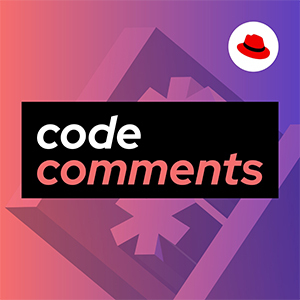About this episode
Yesterday
From Models to Momentum: Uniting Architects and Engineers with ER/Studio
Summary In this episode of the Data Engineering Podcast, Jamie Knowles (Product Director) and Ryan Hirsch (Product Marketing Manager) discuss the importance of enterprise data modeling with ER/Studio. They highlight how clear, shared semantic models are a foundational discipline ... Show More
45m 2s
Feb 22
From Data Models to Mind Models: Designing AI Memory at Scale
Summary In this episode of the Data Engineering Podcast, Vasilije "Vas" Markovich, founder of Cognee, discusses building agentic memory, a crucial aspect of artificial intelligence that enables systems to learn, adapt, and retain knowledge over time. He explains the concept of ag ... Show More
57m 47s
Feb 15
Prompt Management, Tracing, and Evals: The New Table Stakes for GenAI Ops
Summary In this episode of the Data Engineering Podcast, Aman Agarwal, creator of OpenLit, discusses the operational groundwork required to run LLM-powered applications reliably and cost-effectively. He highlights common blind spots that teams face, including opaque model behavio ... Show More
50m 43s
Nov 2021
AI-generated code with OpenAI Codex
Recently, GitHub released Copilot, which is an amazing AI pair programmer powered by OpenAI’s Codex model. In this episode, Natalie Pistunovich tells us all about Codex and helps us understand where it fits in our development workflow. We also discuss MLOps and how AI is influenc ... Show More
46m 37s
Mar 2024
FEHH x WWW: AI, VR, and the Future of Web Development
<p>In this crossover episode, Chuck and Robbie join Jem Young and Ryan Burgess from Front End Happy Hour for an engaging discussion over whiskey. They share their career backgrounds, touching on their work with major tech brands like Netflix, Amazon, and National Geographic, and ... Show More
53m 21s
Mar 2023
AI and Coding with ChatGPT
In this episode of Syntax, Wes and Scott talk about the current landscape of AI, how AI is trained, is AI going to take your job, who’s going to train AI, and adding AI to your applications.
Sentry - Sponsor If you want to know what’s happening with your code, track errors and m ... Show More
1h 6m
Apr 2024
Fashioning the Perfect Fit With AI: Stitch Fix’s Jeff Cooper
Jeff Cooper parlayed his interest in neuroscience and human behavior into a career in data science and today works as a senior data science director for online retail subscription service Stitch Fix. Jeff joins Me, Myself, and AI to share how the company pairs human employees wit ... Show More
37m 17s
Jun 2020
AI for the Mainstream
26m 39s
Aug 2022
Rendered.ai CEO Nathan Kundtz on Using AI to Build Better AI - Ep. 177
Data is the fuel that makes artificial intelligence run. Training machine learning and AI systems requires data. And the quality of datasets has a big impact on the systems’ results. But compiling quality real-world data for AI and ML can be difficult and expensive. That’s where ... Show More
31m 18s
Jan 2023
24. Artificial Intelligence: What Is It? What Is It Not? (feat. Susan Farrell, Principal UX Researcher at mmhmm.app)
<p>The term artificial intelligence, AI, is having a bit of a boom, with the explosion in popularity of tools like ChatGPT, Lensa, DALL•E 2, and many others. The praises of AI have been equally met with skepticism and criticism, with cautionary tales about AI information quality, ... Show More
35m 35s
Summary
The purpose of business intelligence systems is to allow anyone in the business to access and decode data to help them make informed decisions. Unfortunately this often turns into an exercise in frustration for everyone involved due to complex workflows and hard-to-understand dashboards. The team at Zenlytic have leaned on the promise of large language models to build an AI agent that lets you converse with your data. In this episode they share their journey through the fast-moving landscape of generative AI and unpack the difference between an AI chatbot and an AI agent.
Announcements
- Hello and welcome to the Data Engineering Podcast, the show about modern data management
- This episode is supported by Code Comments, an original podcast from Red Hat. As someone who listens to the Data Engineering Podcast, you know that the road from tool selection to production readiness is anything but smooth or straight. In Code Comments, host Jamie Parker, Red Hatter and experienced engineer, shares the journey of technologists from across the industry and their hard-won lessons in implementing new technologies. I listened to the recent episode "Transforming Your Database" and appreciated the valuable advice on how to approach the selection and integration of new databases in applications and the impact on team dynamics. There are 3 seasons of great episodes and new ones landing everywhere you listen to podcasts. Search for "Code Commentst" in your podcast player or go to dataengineeringpodcast.com/codecomments today to subscribe. My thanks to the team at Code Comments for their support.
- Data lakes are notoriously complex. For data engineers who battle to build and scale high quality data workflows on the data lake, Starburst is an end-to-end data lakehouse platform built on Trino, the query engine Apache Iceberg was designed for, with complete support for all table formats including Apache Iceberg, Hive, and Delta Lake. Trusted by teams of all sizes, including Comcast and Doordash. Want to see Starburst in action? Go to dataengineeringpodcast.com/starburst and get $500 in credits to try Starburst Galaxy today, the easiest and fastest way to get started using Trino.
- Your host is Tobias Macey and today I'm interviewing Ryan Janssen and Paul Blankley about their experiences building AI powered agents for interacting with your data
Interview
- Introduction
- How did you get involved in data? In AI?
- Can you describe what Zenlytic is and the role that AI is playing in your platform?
- What have been the key stages in your AI journey?
- What are some of the dead ends that you ran into along the path to where you are today?
- What are some of the persistent challenges that you are facing?
- So tell us more about data agents. Firstly, what are data agents and why do you think they're important?
- How are data agents different from chatbots?
- Are data agents harder to build? How do you make them work in production?
- What other technical architectures have you had to develop to support the use of AI in Zenlytic?
- How have you approached the work of customer education as you introduce this functionality?
- What are some of the most interesting or erroneous misconceptions that you have heard about what the AI can and can't do?
- How have you balanced accuracy/trustworthiness with user experience and flexibility in the conversational AI, given the potential for these models to create erroneous responses?
- What are the most interesting, innovative, or unexpected ways that you have seen your AI agent used?
- What are the most interesting, unexpected, or challenging lessons that you have learned while working on building an AI agent for business intelligence?
- When is an AI agent the wrong choice?
- What do you have planned for the future of AI in the Zenlytic product?
Contact Info
Parting Question
- From your perspective, what is the biggest gap in the tooling or technology for data management today?
Closing Announcements
- Thank you for listening! Don't forget to check out our other shows. Podcast.__init__ covers the Python language, its community, and the innovative ways it is being used. The Machine Learning Podcast helps you go from idea to production with machine learning.
- Visit the site to subscribe to the show, sign up for the mailing list, and read the show notes.
- If you've learned something or tried out a project from the show then tell us about it! Email hosts@dataengineeringpodcast.com) with your story.
Links
The intro and outro music is from The Hug by The Freak Fandango Orchestra / CC BY-SA
Sponsored By:
- Starburst: 
This episode is brought to you by Starburst - an end-to-end data lakehouse platform for data engineers who are battling to build and scale high quality data pipelines on the data lake. Powered by Trino, the query engine Apache Iceberg was designed for, Starburst is an open platform with support for all table formats including Apache Iceberg, Hive, and Delta Lake.
Trusted by the teams at Comcast and Doordash, Starburst delivers the adaptability and flexibility a lakehouse ecosystem promises, while providing a single point of access for your data and all your data governance allowing you to discover, transform, govern, and secure all in one place. Want to see Starburst in action? Try Starburst Galaxy today, the easiest and fastest way to get started using Trino, and get $500 of credits free. Go to [dataengineeringpodcast.com/starburst](https://www.dataengineeringpodcast.com/starburst)
- Red Hat Code Comments Podcast: 
Putting new technology to use is an exciting prospect. But going from purchase to production isn’t always smooth—even when it’s something everyone is looking forward to. Code Comments covers the bumps, the hiccups, and the setbacks teams face when adjusting to new technology—and the triumphs they pull off once they really get going. Follow Code Comments [anywhere you listen to podcasts](https://link.chtbl.com/codecomments?sid=podcast.dataengineering).
Support Data Engineering Podcast
<p>Venkat Rangan (Co-Founder & CTO @ Clari) talks about AI and application into more mainstream areas and revenue generation.<br/><br/><b>SHOW: </b>453<br/><br/><b>SHOW SPONSOR LINKS:</b></p><ul><li><a href='https://www.taos.com/'>Taos Homepage</a></li><li><a href='https://ww ... Show More

